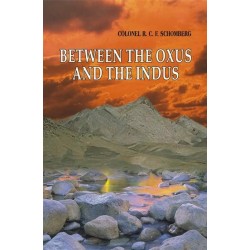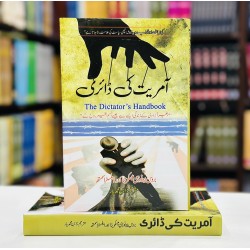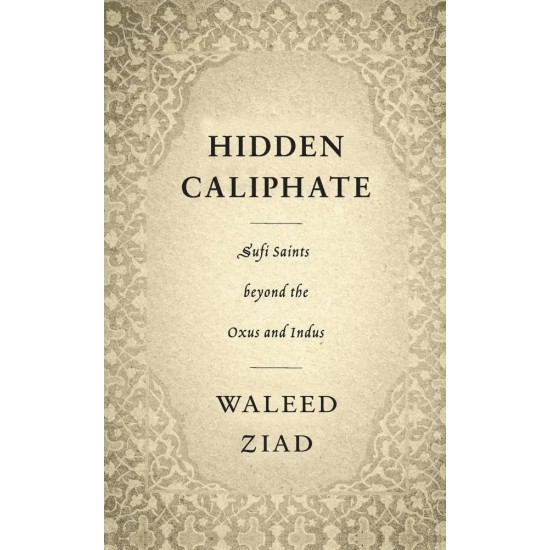
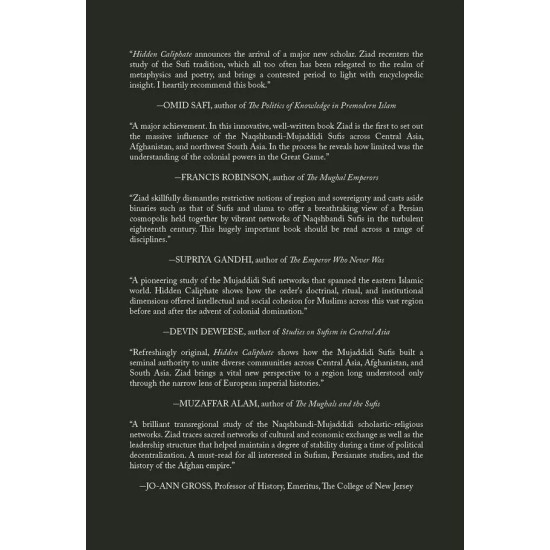
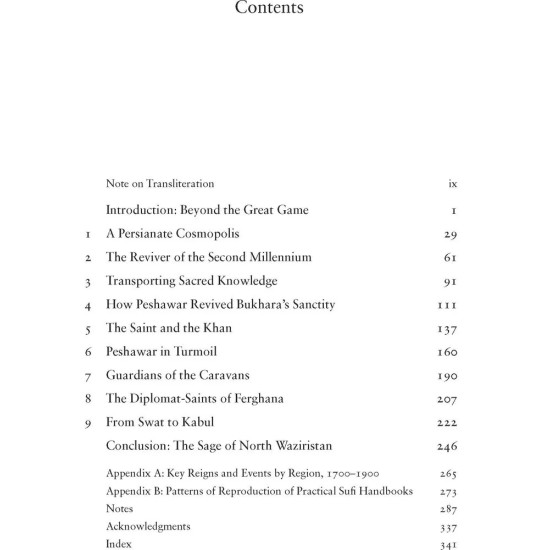



- Writer: Waleed Ziad
- Category: English
- Pages: 366
- Stock: In Stock
- Model: STP-12603
2022, Winner of the Albert Hourani Book Award, the most prestigious award in “Middle East Studies through the Middle East Studies Association”
2023, Winner of the AIPS (American Institute of Pakistan Studies) Book Prize
2023, Shortlisted for British Association for South Asian Studies Book Prize
2022, Shortlisted for Bloomsbury Pakistan Book Prize
In a pathbreaking book, Waleed Ziad tells the story of Central and South Asia through the lens of transnational Sufi networks from the 18th century onwards, offering a vital new perspective on a region long understood only through European imperial histories. Having conducted fieldwork across Afghanistan, Pakistan, and Central Asia, in 140 towns and villages, often living with religious communities in the Afghan-Pakistan border areas, Ziad shows how Asia was knit together by networks of Sufis centered in the region’s chief cities, notably Peshawar and Bukhara. These Sufis, known as the Naqshbandi-Mujaddidis, fused Persian, Arabic, Turkish, and Indian literary traditions, mystical virtuosity, popular religious practices, and urban scholasticism in a unified yet flexible expression of Islam. They brought cohesion to diverse Muslim communities from Punjab to the Central Asian steppes and Siberia. Always misrepresented by colonial actors, these Sufis were the major force of military, social, and ideological resistance against the British and Soviet invasions through the 19th and 20th centuries and their influence is still felt today across the Muslim world.
Ziad fuses social history, religious studies, and anthropology to offer a new vision of Islamic sovereignty, where a Hidden Caliphate of Sufis provided order in times of political upheaval and fragmentation. Correspondingly, he demonstrates the place of regions like Kabul, Dera Ismail Khan, and Farghana, as pivot points of Eurasia where a host of knowledge systems, spiritual and scholastic networks, and nationalities blended. This work is therefore essential in not only reframing our understanding of the history of Afghanistan, Pakistan, and their neighbors, but tracing how the region transformed from a cosmopolitan center with a flexible religious tradition into a breeding ground for exclusionary, monolithic interpretations of Islam.
About the Author
Waleed Ziad is Associate Professor in Religious Studies at the University of North Carolina at Chapel Hill. Prior to this, he was an Islamic Law and Civilization Research Fellow at Yale Law School. He completed his BA, MA/MPhil, and PhD in History at Yale, where his dissertation won the university-wide Field Prize. In the last decade, Ziad has conducted fieldwork on historical and contemporary religious revivalism and Sufism in over 140 towns across Afghanistan, Uzbekistan, and Pakistan. He has studied Persian, Urdu, Arabic, Sindhi, French, Uzbek / Chaghatai, and Romanian.
His books include Hidden Caliphate: Sufi Saints beyond the Oxus and Indus (Harvard, 2021), In the Treasure Room of the Sakra King: Votive Coinage from Gandharan Shrines (American Numismatic Society, 2022), Sufi Masters of the Afghan Empire: Bibi Sahiba and Her Spiritual Network (Harvard, exp. 2025), and Beyond the Khutba and Sikka: Sovereignty and Coinage in Sindh (in progress). His articles have appeared in the New York Times, Wall Street Journal, Foreign Policy and major dailies internationally.
| Book Attributes | |
| Pages | 366 |

